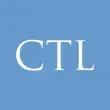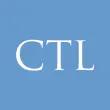This course is part of Women Have Always Worked.
This course explores the transformative period in American women's history from 1920 to 1950, focusing on the impact of the 19th Amendment and women's evolving roles in society. Students will examine the new cultural and economic opportunities that emerged for women, while analyzing the racial, familial, and legal constraints that persisted. The curriculum covers crucial developments including the emergence of different feminist movements, women's experiences during the Great Depression, and their vital contributions to the World War II effort, exploring both the opportunities and barriers that characterized this pivotal era.
English
English
What you'll learn
Analyze the impact of the 19th Amendment on women's political participation
Examine the emergence and differences between equality and social feminists
Understand legal constraints on women's independence in the early 20th century
Explore women's roles in labor movements and strikes
Analyze changes in attitudes toward working women from Depression to WWII
Evaluate women's contributions and challenges during World War II
Skills you'll gain
This course includes:
PreRecorded video
Graded assignments, exams
Access on Mobile, Tablet, Desktop
Limited Access access
Shareable certificate
Closed caption
Get a Completion Certificate
Share your certificate with prospective employers and your professional network on LinkedIn.
Created by
Provided by

Top companies offer this course to their employees
Top companies provide this course to enhance their employees' skills, ensuring they excel in handling complex projects and drive organizational success.





Module Description
This comprehensive course examines women's experiences in America from 1920 to 1950, a period of significant social and political change. The curriculum explores how the passage of the 19th Amendment impacted women's political participation and created competing views of equality. Students learn about the emergence of different feminist movements, the effects of protective labor legislation, women's experiences during the Great Depression, and their crucial role in World War II. The course also analyzes how various factors including race, legal structures, and social expectations continued to shape women's opportunities and constraints during this transformative period.
Fee Structure
Individual course purchase is not available - to enroll in this course with a certificate, you need to purchase the complete Professional Certificate Course. For enrollment and detailed fee structure, visit the following: Women Have Always Worked
Instructors
Innovating Education Through Technology and Pedagogy
The Columbia University Center for Teaching and Learning (CTL) is a comprehensive resource dedicated to enhancing teaching and learning across Columbia University. The CTL partners with faculty, students, and colleagues to support excellence and innovation in education through a wide range of programs, services, and resources. Their offerings include teaching consultations, workshops, technology training, and online courses. The CTL promotes inclusive, learner-centered, and research-based pedagogy while supporting the use of new media and emerging technologies in classrooms and online learning environments. Their course offerings on edX cover diverse topics including Crisis Resource Management, a multi-part series on the Civil War and Reconstruction era, Fighting for Equality: 1950-2018, and a series on women's labor history titled "Women Have Always Worked." Through these initiatives, the CTL aims to foster professional development, curricular enhancement, and academic excellence for Columbia's instructors and students.

5 Courses
Eminent Scholar of American Labor History and Women's Studies
Alice Kessler-Harris, the R. Gordon Hoxie Professor of American History Emerita at Columbia University, is a preeminent scholar in American labor history and women's studies. Her groundbreaking research focuses on the history of American labor, 20th-century social policy, and women's work. Kessler-Harris is acclaimed for seminal works such as "In Pursuit of Equity" and "Out to Work," which have significantly shaped understanding of women's roles in the workforce and American socioeconomic landscape. Her leadership extends beyond academia, having served as president of major historical associations and currently as Vice President of the Society of American Historians. An elected member of prestigious scholarly societies, Kessler-Harris continues to influence the field through her teaching, including courses on "Fighting for Equality: 1950-2018" and the "Women Have Always Worked" XSeries at Columbia. Her work not only illuminates the historical experiences of working women but also contributes to broader discussions on gender, labor, and social policy in America
Testimonials
Testimonials and success stories are a testament to the quality of this program and its impact on your career and learning journey. Be the first to help others make an informed decision by sharing your review of the course.
Frequently asked questions
Below are some of the most commonly asked questions about this course. We aim to provide clear and concise answers to help you better understand the course content, structure, and any other relevant information. If you have any additional questions or if your question is not listed here, please don't hesitate to reach out to our support team for further assistance.




